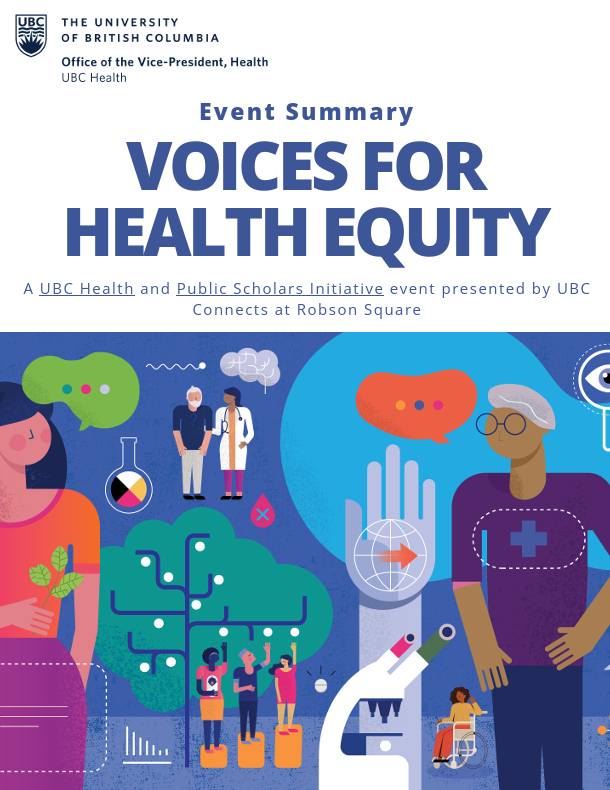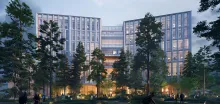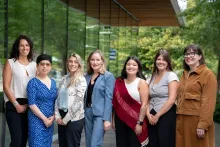
A UBC Health and Public Scholars Initiative event, presented by UBC Connects at Robson Square
About the Event
This event took place on November 4, 2024. This free half-day event was dedicated to showcasing the groundbreaking work of leading and emerging public scholars and innovators in the health equity space. This event aimed to foster connections and dialogue among diverse partners in health, exploring how we can work together to advance health equity.
Event Highlights
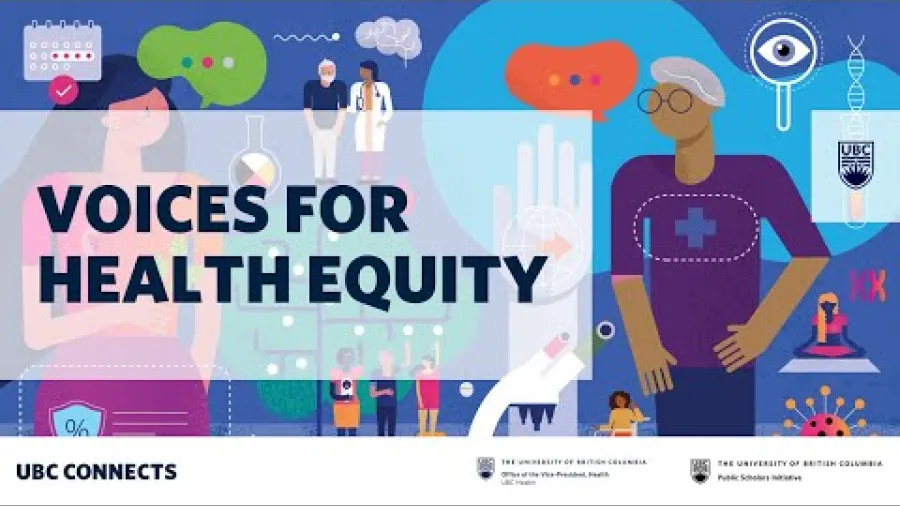
- Thought-Provoking Presentations: Participants learned about innovative research and impactful initiatives through presentations by PSI scholars, UBC faculty, community members, and leaders in health equity.
- Interactive Discussions: There was a dynamic Q&A panel and various dialogue stations, allowing for meaningful exchange and idea-sharing on health equity themes.
- Networking Opportunities: The day concluded with a reception where you participants connected with leaders, scholars, and community members committed to advancing health equity.
Watch the event videos!
Event Summary
Join us again in 2026
Event Speakers
This event featured diverse speakers who captured the concept of health equity from their distinct disciplines and perspectives.
Manvi Bhalla
Manvi (she/her) is an activist-scholar with over 15 years of community organizing experience. She is recognized as one of Canada’s ‘Top 25 Under 25’ environmentalists, ‘Top 30 Under 30’ sustainability leaders and was honoured with the ‘Youth Eco-Hero of the Year’ award in 2022. She co-founded Shake Up The Establishment, a national nonprofit dedicated to climate justice & political advocacy, alongside missINFORMED, a nonprofit focused on health promotion for women and gender-diverse people. Alongside her advocacy work, Manvi is a published health researcher, frequent public speaker and guest lecturer who works to centre anti-colonial approaches. During her MSc, she investigated barriers towards climate action within the public health sector. This research discerned the knowledge and understanding of climate change-related health risks by public health authorities, determined local mitigation, adaptation and risk communication strategies and identified policy recommendations for the Ontario Public Health sector at large. Presently, she is a PhD student at University of British Columbia with SSHRC Doctoral Fellowship funding. Her research works to advance intersectional environmental justice in environmental health policy-making to better serve the holistic health needs of racially, ethnically and gender-minoritized populations. Research methods for this work include critical policy analyses to assess the procedural justice implications of recent CEPA reforms, community-based participatory action workshops to capture urban South Asian communities’ embodied experiences of environmental health risks and to co-develop a submission for the forthcoming NEJ strategy public consultation, and to utilise arts-based methods to co-imagine environmentally just futures with racially-minoritized youth.
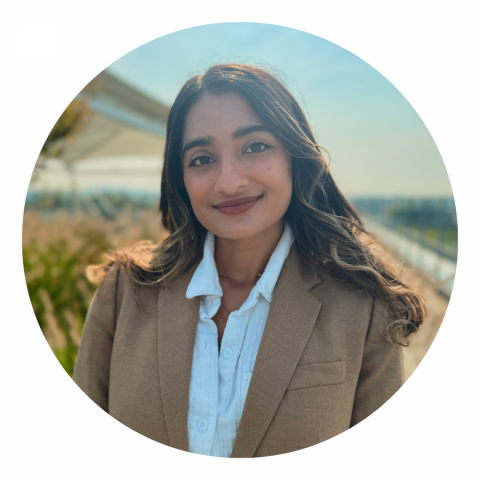
Jennifer Black
Jennifer Black is an Associate Professor of Food, Nutrition and Health in the Faculty of Land and Food Systems at the University of British Columbia. She leads the Public Health and Urban Nutrition Research Group and teaches courses related to applied nutrition, land, food and community health and research methods. Her research aims to improve understanding of the complex social and contextual factors that shape the health of individuals, communities and of the environment, with a focus on social determinants of health, food environments, school health, and food systems research. She co-leads the Hungry Stories Project, an initiative that brings together scholars and artists with the goal of making art and writing stories that will get people talking about food insecurity and what we can do to make sure no one ever goes hungry.
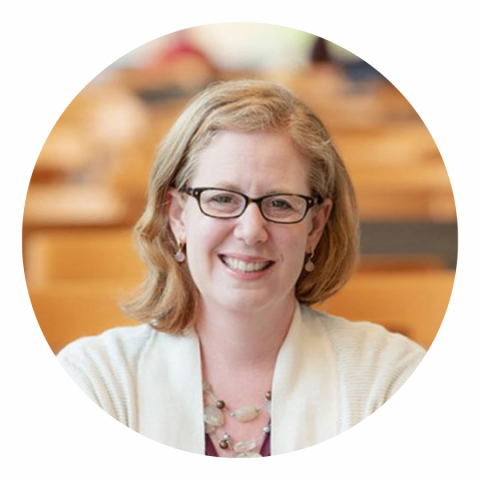
Kennedy Borle
Kennedy Borle (she/her) is a board-certified genetic counsellor and PhD Candidate in the Interdisciplinary Studies Program at UBC. Her doctoral research is about exploring the unmet need for clinical genetic services in Canada and identifying strategies to improve equitable access to care. Her other areas of interests include integrating genetic counsellors into primary care, and research in the context of health services and systems. Kennedy lives in Vancouver, BC with her partner and enjoys playing soccer and pickleball and reading fiction.
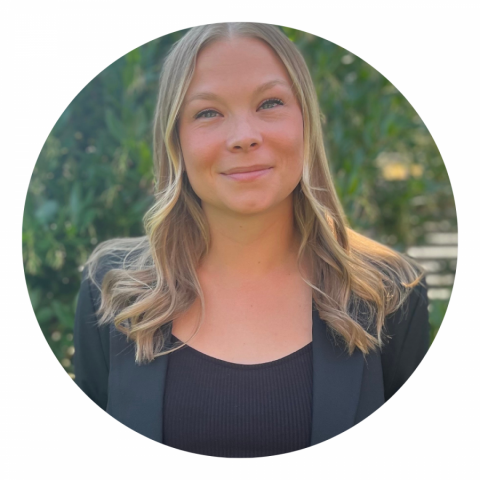
Laura Yvonne Bulk
Dr. Laura Yvonne Bulk is a daughter, disabled scholar, advocate, friend, learner, woman, teacher, mentor, sister, tante, mentee, occupational therapist, artist, and activist. She is the first in her family to have the opportunity of obtaining a degree in higher education. Laura is a Dutch settler and is privileged to play, work, and live on the unceded, ancestral, and continually occupied territories of the xʷməθkʷəy̓əm (Musqueam), Sḵwx̱wú7mesh Úxwumixw (Squamish), Tsleil-Waututh (Slay-wa-tuth), and W̱SÁNEĆ (Saanich) Peoples. She is teaching masters’ students in the Master of Occupational Therapy program at the University of British Columbia, and her service and research focus on building more just environments and fostering belonging in higher education and healthcare.
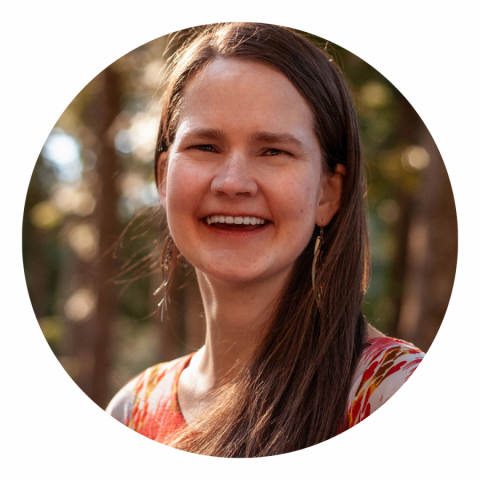
BCC3 Team (Shelly Tognazzini , Davi Pang, and Tetiana Povshedna)
Shelly Tognazzini
Shelly has 16 years of lived and 12 years of work experience within the HIV community and research sectors. Shelly is passionate about working amongst a team of exemplary people in community-based research values, principles, and equity. Currently, Shelly is involved in several women's research studies and initiatives including her work as a Community Research Associate with the British Columbia CARMA-CHIWOS Collaboration Study, a 5-year, women-centred community and clinic-based research project bringing together women living with HIV, researchers, clinicians, and community partners in British Columbia. Shelly also contributes to the National Women-Centered HIV Care Hub , and is a member on multiple sub-committees, including the Regional B.C. Hub, the Trans and Gender Diverse Hub, and the Futures Leadership Team. Additionally, Shelly is very proud to utilize her background in dance as a Peer Research Associate with the “Positively Dance Project”, a peer-led and driven HIV research project with Dr. Eli Puterman and team at UBC’s School of Kinesiology. Through this initiative, Shelly brings dance classes to women living with HIV and chronic health conditions. Working amongst an amazing team of community members, researchers, and allies across the country, Shelly has been an active contributor to the community, bringing her voice and lived experiences to diverse spaces with curiosity, leadership, and passion.

Davi Pang
An experienced professional with a diverse skill set and a passion for making a difference, Davi brings a wealth of knowledge translation and mobilization, crisis management, and collaborative problem-solving to every endeavor. With a keen eye for detail and a natural ability to connect with clients and care teams, she builds lasting relationships based on trust and confidence.
In her current role as a Community Research Associate with the British Columbia CARMA-CHIWOS Collaboration (BCC3) , Davi collaborates closely with stakeholders to recruit participants, facilitate workshops, and administer surveys. Her dedication to knowledge mobilization is evident in her efforts to disseminate preliminary findings and engage with community organizations and partners. Her previous work with organizations such as the BC Yukon Society of Transition Houses (BCYSTH) and Justice for Girls have given her opportunities to learn, develop, and implement training programs, evaluate membership cycles, and contribute to impactful research projects aimed at empowering marginalized communities. Complementing her professional experience are certifications in trauma-informed care, substance abuse counseling, and adult residential care first aid. Davi is committed to continuous learning and growth, ensuring that she remains equipped with the latest tools and techniques to deliver meaningful support. Beyond Davi’s professional pursuits, she finds joy in activities such as dancing, hiking, and reading. Yoga serves as a grounding practice, while spending time with children and her beloved puppy brings boundless happiness and fulfillment.
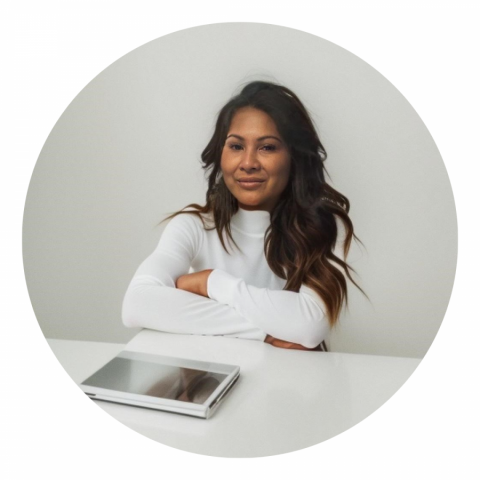
Tetiana Povshedna
Tetiana Povshedna is a PhD Candidate in the Department of Pathology and Laboratory Medicine (Côté Lab) at the University of British Columbia. Her research with the British Columbia CARMA-CHIWOS Collaboration (BCC3) Study focuses on better understanding factors that affect healthy aging in women living with and without HIV in BC. More specifically, her work investigates how burden of chronic/latent viral infections, inflammation, chronic pain, and cellular markers of aging relate to estimated risk of comorbidity development/progression and mortality in women. Tetiana is also passionate about knowledge translation and mobilization aspects of community-based research. Her knowledge mobilization (KM) project has been supported by the UBC Public Scholars Initiative since 2022 and focuses on strengthening the bi-directional relationship between research studies and communities that make them possible. The project meaningfully communicates personalized and, most importantly, actionable BCC3 research findings (e.g. liver health, heart health, and kidney health markers) back to study participants during engaging and fun events. The events are co-developed by the BCC3 Knowledge Mobilization team (which includes Shelly Tognazzini, Davi Pang, and other team members) in partnership with Ribbon Community (previously known as AIDS Vancouver), and have brought together over 100 women to date, both in-person in Vancouver and virtually across the province. These events support women-centered approach to research by providing BCC3 study participants with valuable tools and information that may positively influence their everyday life, awareness about healthy aging, and communication with their care providers.
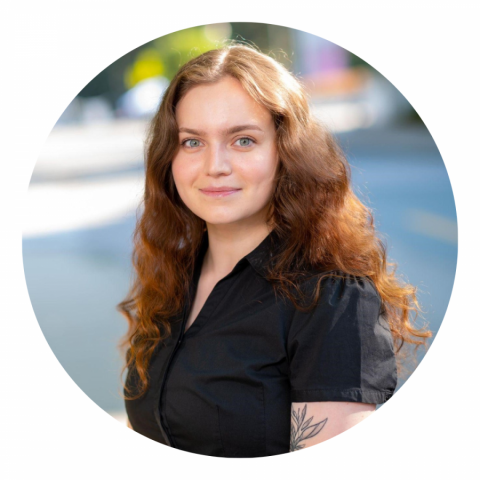
Andrea Burrows
Andrea is a PhD student at the University of British Columbia, Faculty of Health and Social Development on the Okanagan Campus. Her PhD work focuses on how nurses and families use technologies to interact, communicate and build relationships. Andrea’s research advances health equity by improving practices of tailoring technologies to enhance access and quality of care in multi-modal service delivery. Her work focuses on pregnant people and families with young children living in small communities and coping with multiple responsibilities in British Columbia.
Andrea earned a Bachelor of Science in Nursing from the University of Alberta and went into teaching at NorQuest College in Edmonton. Andrea pursued a Master of Science in Nursing at the University of British Columbia and examined trends of clinical placements and implications on nursing education. Andrea then returned to practice to test out the utility of her Masters in the real world as a Staff Development Educator in Kamloops. There she implemented hospital-wide education, involving community-led projects, and leading interdisciplinary teams, which sparked her interest in health equity. Simultaneously, Andrea worked alongside a team of nurses, who were struggling to implement digital technologies as a way to reach clients, and quickly realized the efforts to advocate for the needs of point of care. The intersection of health equity and technologies is what drives the work she does now. Andrea lives with her young family on the unceded territories of the Secwepemc Peoples. She enjoys being a mother, fixing things and getting involved in climate action.
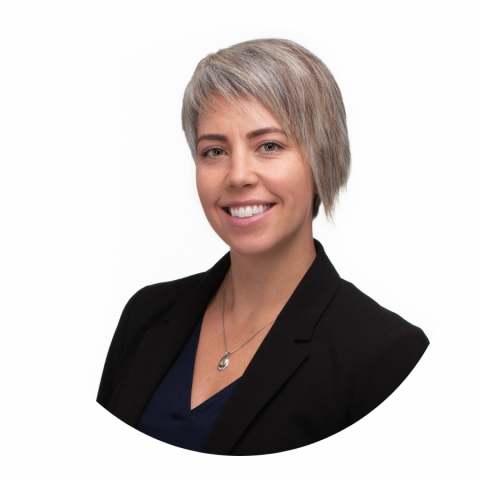
Jonathan Easey
Jonathan Easey is a PhD student in the Educational Studies Program at UBC’s Faculty of Education. His research focuses on increasing access to Pre-Exposure Prophylaxis (PrEP) for HIV prevention within Vancouver’s Queer community. Jonathan’s work seeks to empower Queer patients to educate their healthcare providers about PrEP, thus improving access to this essential HIV prevention strategy. His approach is informed by theories of adult learning and medical education and addresses the broader societal factors that shape health care interactions.
Jonathan is a recipient of the UBC Four Year Doctoral Fellowship and a Health Equity Scholar in the Public Scholars Initiative. He has partnered with community organizations and researchers who share his commitment to advancing health equity. His passion for health education extends beyond academia, as his research is directly informed by his volunteer work connecting Queer patients with healthcare resources. Jonathan holds a BA from Florida State University and an MA from UBC, both in Music Theory.
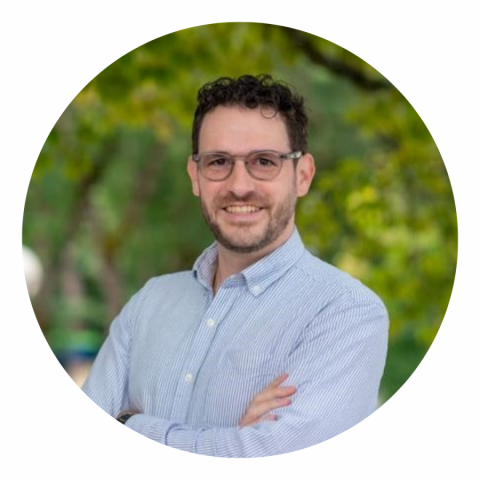
Mei-ling Wiedmeyer
Mei-ling Wiedmeyer is a family physician and Clinical Assistant Professor in the UBC Department of Family Practice. She works at the Umbrella Multicultural Health Co-op, a community health centre using a novel team-based care model with Cross Cultural Health Brokers to provide comprehensive primary care to refugee, immigrant, and migrant populations who face barriers to health care access. She is the co-Principal Investigator of the ‘Evaluating Inequities in Refugee & Immigrants’ Health Access (IRIS)’ Project, a community-based mixed methods research project using qualitative interviews and administrative data to understand health care access for immigrants and refugees in BC.
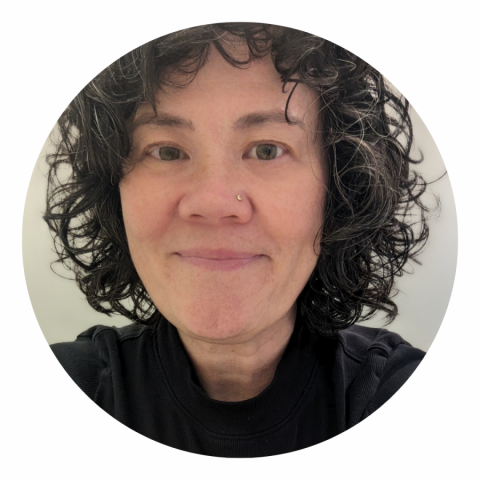
Event Partners
This event was hosted by UBC Health and Public Scholars Initiative and presented by UBC Connects.
Stay tuned for future PSI Health Equity Stream events.
- Stories
- Interdisciplinary Research
